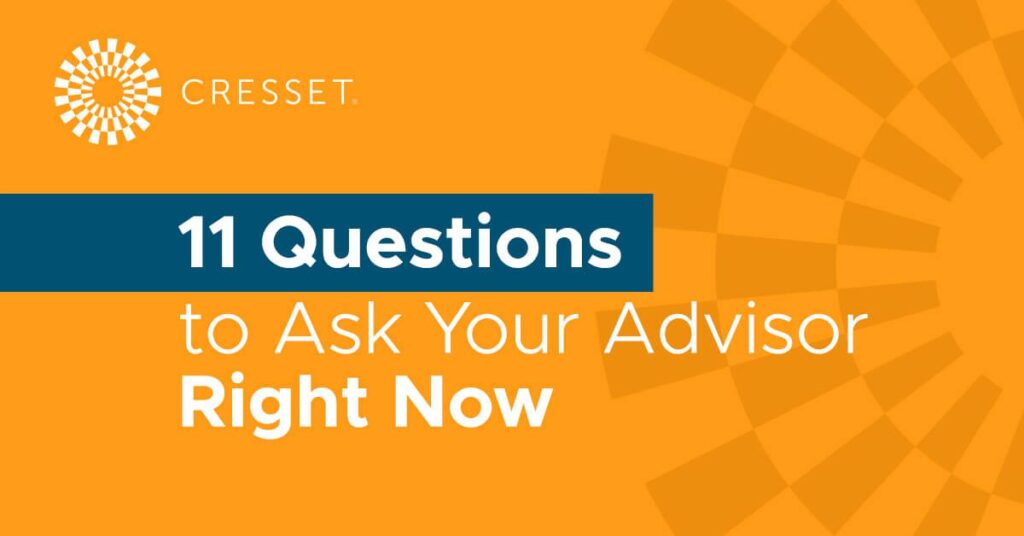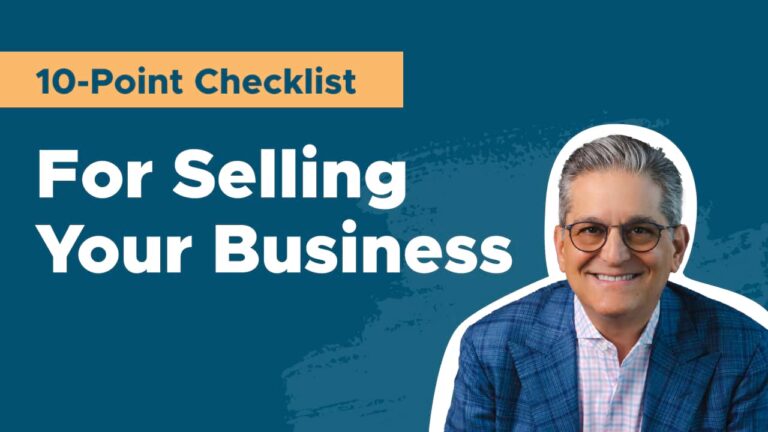
The world is currently in flux in a myriad of ways. The markets are being rocked by daily volatility. Geo-political turmoil continues to escalate around the globe. Inflation has risen to a level we haven’t seen in decades.
As jarring and unsettling as all of this can seem, the current environment presents an ideal time to re-evaluate what your advisor is (and isn’t) doing for you. All of the factors referenced above can significantly impact your portfolio, alter your risk tolerance, and cause you to rethink your overall financial goals. Your advisor should have the capability to react and position you and your family for the best possible outcomes. Now is the time to determine how well aligned you are with your advisor on everything from performance to costs to overall understanding of your needs. Below are 11 questions to ask your advisor right now:
- Are we properly aligned? Are you a fiduciary? If your advisor is not able to clearly and definitively state that he or she is a fiduciary, he or she is likely not. An advisor who is a fiduciary is legally obligated to always do what’s best for you and your family.
- Have we developed a comprehensive financial plan? Are we still on track? Regardless of the returns you’ve experienced, if your advisor doesn’t have a robust, up-to-date financial plan for you and your family, it’s a serious red flag. Everyone should have a comprehensive plan that is kept current. Investment decisions are informed by your plan.
- Do you use a goals-based investing methodology? Your investments should be rooted in your individual and family goals and aspirations, not generic diversification models like the traditional 60/40 portfolio. Your advisor should have an investment strategy specific to you and your short- and long-term objectives. If not, you are likely not receiving the personalized level of advice you deserve.
- How often are we interacting? Are you only reacting to requests or reaching out with advice? Have you been reviewing your goals and investment performance with your advisor on a quarterly basis, and is your advisor proactive about raising issues during those meetings? You should feel comfortable that your advisor is adjusting your portfolio based on your best interests between meetings.
- Do I have access to the best investment solutions in the industry? It is your advisor’s responsibility to evaluate the universe of investment solutions for you. Many firms require their advisors to recommend only those opportunities where there is a financial benefit to the recommending firm. In these cases, many of the best solutions are excluded from your portfolio, and performance may suffer.
- Do my investments reflect my tax circumstances and estate plan? Most people think about what they earn, but ultimately, it’s about what you keep after taxes. Your advisor should be proactive about minimizing your tax burden, and he/she should be engaging the right experts on your behalf. Tax alpha and excellent estate planning should always be well-integrated in your investment strategy.
- How has your firm made an effort to reduce my all-in fees? Your advisor should not only be transparent about the ways you’re being charged beyond your stated fee, but also be using its scale to reduce costs on your behalf. For example, it should negotiate fees with lending partners, underlying asset managers, and can even earn you an interest in the general partner of private investments. Your firm should be reducing costs for your benefit, not the firm’s.
- What are all the ways in which you and your firm are compensated? Once again, your advisor should be willing to clearly share all the ways he or she is compensated. If not, there are potentially concerning conflicts of interest that should give you pause. Be wary of compensation that varies depending on how your advisor encourages you to invest. You shouldn’t need to worry about whether your advisor’s own interests are competing with yours.
- How many clients do you have? How many of those clients are similar to me? Many families are shocked to learn that their advisor may be responsible for as many as 80-100 clients or more. That can mean the advisor is not spending as much time focused on their needs as they expect. Ask about what kinds of clients your advisor has, their typical complexity, and assets under management.
- Beyond financial considerations, how else can you help my family? Your advisor’s team should be able to offer more than just investment guidance. Family governance, education, heir education, wealth transfer strategies, goals-based planning, strategic business exit planning, and even concierge services. These are all services that truly holistic advisors and their firms provide.
- Have you considered private investment opportunities for my portfolio? If so, how are those opportunities differentiated? Private investments represent a growing and increasingly important complement to public market investments, often outperforming public markets returns. Many family offices have 35 to 45 percent of their portfolios invested in private markets. Ask your advisor how he/she determines your allocation to private investments. You’ll also need to understand how your advisor selects private investments, what additional fees are included, how they have performed, and how the opportunities are sourced.
About Cresset
Cresset is an independent, award-winning multi-family office and private investment firm with more than $65 billion in assets under management (as of 4/1/25). Cresset serves the unique needs of entrepreneurs, CEO founders, wealth creators, executives, and partners, as well as high-net-worth and multi-generational families. Our goal is to deliver a new paradigm for wealth management, giving you time to pursue what matters to you most.
https://cressetcapital.com/disclosures/
